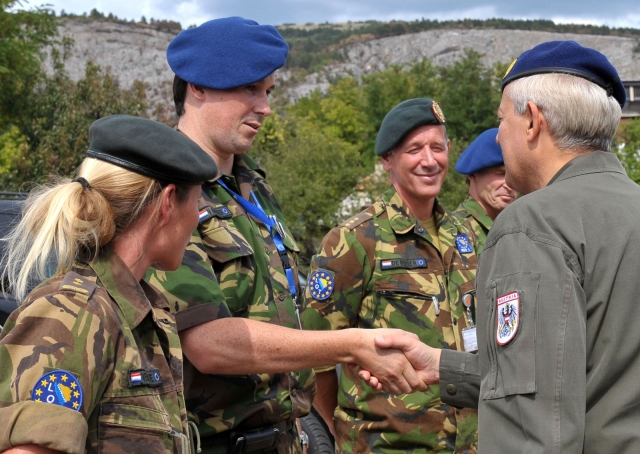Brussels – Reintroducing military conscription to strengthen European armies? This question is being asked by several countries in the European Union, starting with Germany and Italy. The Russian invasion of Ukraine has put the status and prospects of the armed forces back at the centre of discussion in Europe. One of the solutions emerging from various parts of the EU to replenish armies is the introduction of compulsory conscription. Military service, with varying aspects, is already in force in nine countries: Cyprus, Greece, Austria, Lithuania, Latvia, Estonia, Finland, Sweden, and Denmark.
Historically, the introduction of military conscription dates back to the Napoleonic era, when nation-states decided to conscript citizens en masse. Peasants, merchants, and artisans—who had never held a musket—thus found themselves on the battlefields both because countries had a greater need for troops and to take away from the nobility the task of training armies. In the second half of the twentieth century, however, the end of fears of military coups, which were held at bay even with an army composed of ordinary citizens, technological development, and the reduced size of conflicts involving Western countries prompted states to lean toward creating armies formed by professionals.
How military conscription works around Europe
In chronological order, Latvia is the last European country to introduce compulsory conscription in April 2023 after only abolishing it in 2007. The military service decided by Riga is mandatory for all males between the ages of 18 and 27 and lasts 11 months; it remains voluntary for women. What prompted Latvia to reintroduce compulsory conscription is the cumbersome presence of Russia, with which it shares 217 kilometres of the border. The continued Russian fighter jet border violations in the airspace of the Baltic countries, and thus NATO (Riga joined the Atlantic Pact in 2004), accelerated Latvia’s decision to bolster its defences in case of a confrontation with Moscow.
In Austria, military service is compulsory for all male citizens for about eight months; alternatively, for conscientious objectors, there are 13 months of community service. In a 2013 referendum,
Austrians voted 59.7 per cent in favour of preserving the draft. Military service is also compulsory in Denmark: 18-year-olds must perform 4 to 12 months of service, with the alternative of community service. The draft can be postponed until age 25 for further education after high school.
In Finland, there are three different types of recruitment, but from age 18, all male citizens are called to serve in the Armed Forces. Training does not exceed one year, after which you automatically become a reservist and remain one until age 50. On the other hand, Sweden is the only country within the EU with military conscription for both men and women.
In Greece, military service is mandatory between the ages of 19 and 45. The duration varies depending on the force one serves and ranges from nine months for those enlisted in the army to 12 for those enlisted in the Navy. Alternatively, 15 months of civilian service can be served.
Discussions on the reintroduction of compulsory military service
In Italy, in 2004, the Berlusconi government decided to suspend compulsory military conscription in preference to voluntary service. However, the invasion of Ukraine has resurrected the discussion of a possible reintroduction. Pushing the issue is mainly Vice-Premier Matteo Salvini, who, on several occasions, has said to be in favour, arguing that compulsory military service helps raise young people. The opinion of Defense Minister Guido Crosetto is different: according to him: “the armed forces need professionalism; it is not a place to teach or educate young people.”
Germany is also debating reopening conscription. Defense Minister Boris Pistorius stressed the shortage of personnel, both enlisted in the army and among the reserve. The German army plans to reach 203,000 military by 2030, compared to 180,000 today. According to the federal army leadership, reintroducing compulsory military service would be a solution to achieve these goals. The reintroduction of compulsory conscription would also give citizens some notions and a minimum of knowledge about armaments and defence tactics to have a basis in a direct military confrontation.
English version by the Translation Service of Withub




